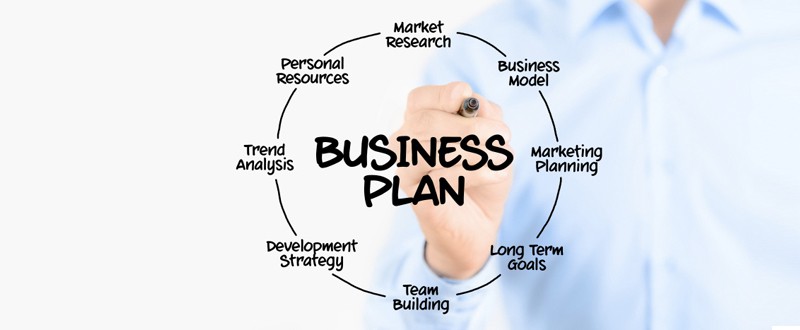It’s a rite of passage for budding entrepreneurs and one of the first exercises any business incubator will put its recruits through: we’ve all written a business plan at some stage. How many people actually use it?
Many business plans get written for a specific reason – often to back up an application for a business bank account, overdraft, or business loan. Once they have served their purpose, they are filed away, or gather dust in a corner of the office.
For many Australian SMEs, this is a lost opportunity: a well crafted business plan is a key tool for all businesses. Whether or not a business is growing or undergoing difficult times – all business owners should plan for both.
What should be in a business plan?
The subject of how to write a business plan has been covered extensively, so there’s already a lot of great advice out there and lots of handy templates to use.
Some of the key elements that should be included in a business plan are: information about your product or services, the ‘unique selling point’ (USP); your market; competition; growth opportunities; your business finances; and your future plans.
Good tips for writing include not trying to do it all in one go: come back to it regularly with fresh eyes and ideally, get a skilled advisor to review it and give their input.
How to use a business plan
While articles abound on how to write an impressive business plan that sells your business to lenders and investors, much less is heard about how to use these plans within the business.
A good business plan will include a set of targets for key metrics, based on real figures and projections of what you think you can achieve. Even if you only wrote it to impress the bank manager, that is a useful document.
Naturally, you are always working to increase sales and bring in new clients, but when you sat back and produced the plan, what targets did you set and how had you envisioned reaching it? You should be prepared to hold yourself to those ambitions.
Your business plan should also include metrics which it is much easier to let slip: Maybe you planned to reduce costs by gaining efficiencies as you grew? What assumptions did you make about your market? Do they still hold true?
This kind of information is very useful when working out your financing needs, because you will be able to easily pinpoint what investments are needed and analyse the best forms of funding them. Can you avoid committing to a business loan if you use invoice finance, for example?
Just as we saw when we looked at reviewing your financing, regular appraisals of your business are useful for spotting problems early, and a great way to stay focused on goals.
Take a look at what you wrote about your market, maybe things are changing. Keeping an up-to-date strategic understanding of the market you serve is a key skill in business. The same is true of your own product: are those selling points you outlined still looking as strong since a new competitor entered the space?
Can a business plan change?
Obviously, the point of a plan is that you at least try to stick to it, so you don’t want to simply change the goalposts because you are struggling to hit a target. This does not mean that your business plan should never change.
In fact, business plans should be fluid and mould as the business grows/changes. In many ways that’s the point of using them regularly, you know when factors change and you adapt accordingly. This should be reflected in the plan, so that those changes and trends can again be reviewed in due course.
A good business plan is a living document at the heart of your strategy. It should reflect current circumstances as well as ambitions, plus it should provide a realistic map for ensuring the two meet.
Who is OptiPay?
OptiPay, one of Australia’s leading business finance providers, has been dedicated to helping small business owners solve cash flow challenges for over a decade and has provided $1.5 billion in business funding to more than 500 Australian businesses. OptiPay specialises in modern financing solutions such as invoice factoring, invoice finance, debtor finance, and lines of credit. OptiPay’s mission is to support business growth providing liquidity in as little as 24 hours, ensuring they have access to tomorrow’s cash flow today. This rapid access to funds helps businesses maintain smooth operations and seize growth opportunities without the stress of cash flow constraints. At OptiPay, we believe that healthy cash flow is the lifeblood of any successful business. Our commitment to helping businesses overcome financial hurdles and achieve their growth ambitions has solidified our reputation as a trusted partner in the business finance sector. Whether you are looking to stabilise your cash flow, expand your operations, or navigate financial challenges, OptiPay is here to support your journey with innovative and efficient financing solutions.



